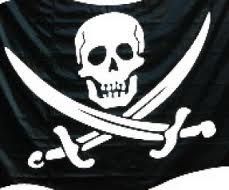
The UK is preparing to give formal legal backing to the use of private armed guards on British merchant vessels to protect against piracy.At present, the government
"strongly discourages" the practice and anyone doing it could be in breach of the law.
But Foreign Office Minister Henry Bellingham said companies should be free to decide on their own security.
He said ideally Royal Marines would be posted on all UK ships, but currently resources did not allow that.
Piracy in the Indian Ocean, particularly off the coast of Somalia, has become a growing problem in recent year. Many companies have been forced to pay large ransoms to secure the release of hostages and cargo.
'Fact of life'
During World War I and II, British merchant vessels were routinely armed, but since then the legal position has been unclear, and any shipowners who employ armed guards could be in breach of the law - as could the guards themselves.
But giving evidence to the foreign affairs committee, Mr Bellingham said the government wanted to clarify the situation.
He said there had not been a single recorded hijack of a vessel with private security and a lot of shipping lines had been "pressing very hard" for a change in the Department for Transport's guidelines.
"We want them to change those guidelines to at the very least neutral," he said.
"The government recognises that armed private security companies are a fact of life.
"We take the view that the UK government shouldn't encourage this, but should not discourage it, so it would be a decision for the shipping industry on a case by case basis."
Mr Bellingham said a review was currently taking place and he had written to Home Secretary Theresa May to discuss the changes that would be needed to firearms legislation.
He said he believed the changes could be brought about by secondary legislation, with the home secretary issuing permits to any companies wishing to carry weapons.
The British government is thought to be one of the first to promise statutory changes on the issue, but the minister said it would be important to work with other countries because a lot of UK companies use vessels registered elsewhere.
'Considerable burden'
The committee asked whether it would be possible for the Ministry of Defence to follow the example of France and Spain and provide so-called military vessel protection detachments (VPDs) to protect individual ships.
Mr Bellingham said that would be "a very welcome step forward" but the current pressure on resources made it impractical.
"At the moment our armed forces are very heavily committed. If a stage was reached when our armed forces were less committed I'm sure the MoD would look at a request for providing VPDs."
Capt David Reindorp, head of the MoD's defence crisis management centre, estimated the UK would need about 500 Royal Marines at any one time to protect all of its vessels.
"That doesn't take into account the 500 that would be preparing to take over from them and the 500 that would be recovering from having been there," he said.
"That's a considerable burden. If you wish them to do that they would have to stop doing something else."
Britain's Chamber of Shipping has said it supports the government's actions to clarify the law, but said armed guards should only be used as a resort and relying on them demonstrates a failure by naval forces to protect merchant shipping.
'Frustrating'
The committee also demanded to know why nine out of 10 suspected pirates captured off Somalia by the Royal Navy were released without charge.
They said that last month alone, three ships carrying pirates and their hostages were intercepted by the Navy, but all of the alleged criminals were released without charge.
Capt Reindorp said his personnel found it "very frustrating" and said there were a number of factors which made it very difficult to detain and prosecute pirates unless they were caught actually in the act.
He said witnesses and hostages often refused to testify, and it could be hard to tell pirates from hostages and ordinary fishermen.
Mr Bellingham said the UK was trying to build local capacity to bring prosecutions by channelling aid money into court and prison facilities.
Source: BBC News
We use cookies to improve your experience. By continuing to use our site, you accept our Cookies, Privacy Policy,Terms and Conditions. Close X